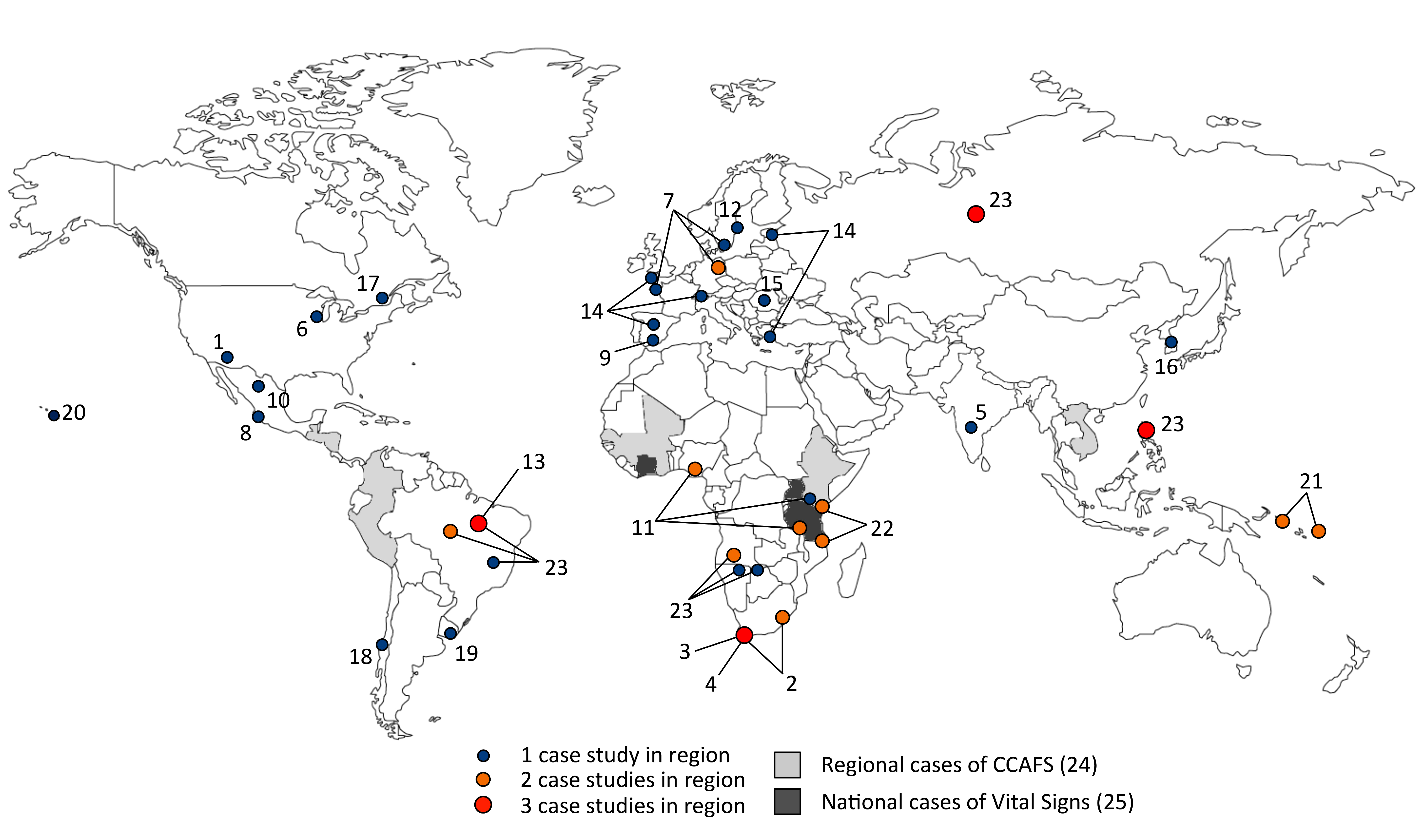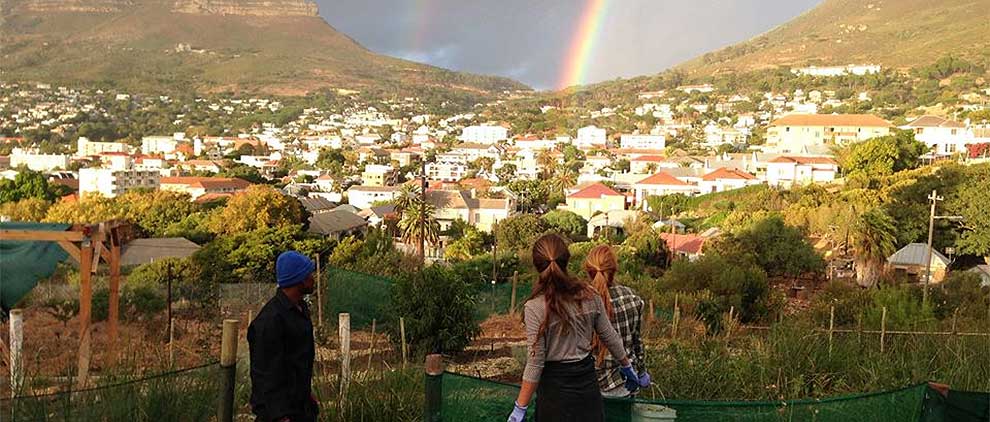
A paper published in Ecology and Society examines the key features that contribute to the success of 42 place-based social-ecological case studies. It argues there is a growing need to understand better how to maximize the effectiveness of this work. Photo: M. Logelin/C.C 2.0
Bildtext får vara max två rader text. Hela texten ska högerjusteras om den bara ska innehålla fotobyline! Photo: B. Christensen/Azote
sustainability science
Well-placed (for sustainability science)
Five keys to successful place-based research that can support sustainability transitions
Study examines the key features that contribute to the success of 42 place-based social-ecological case studies
There is a growing need to understand better how to maximize the effectiveness of social-ecological sustainability research
The results presented in the paper are based on a survey of the leaders of Programme on Ecosystem Change and Society affiliated projects
Want to become a successful researcher in sustainability science? Then you should read a paper published in Ecology and Society that examines the key features that contribute to the success of 42 place-based social-ecological case studies spread across 25 countries.
The study was co-written by centre researchers Tim Daw, Albert Norström, Maike Hamann and Garry Peterson together with an international network of colleagues.
They argue that amid the increasing research conducted within sustainability science on the interactions between nature and society and transitions toward sustainability, the time is ripe for some self-critique.
A growing body of place-based social-ecological sustainability research has emerged in recent decades, and there is an increasing need to understand better how to maximize the effectiveness of this work
Daw, Norström, Hamann, et.al
The paper is part of a special feature on the Programme on Ecosystem Change and Society (PECS) called “Knowledge for Sustainable Stewardship of Social-Ecological Systems”.
The results presented in the paper are based on a survey of the leaders of PECS-affiliated projects. Using a combination of open, closed, and semi structured questions the authors identified which features of a research project that are perceived to contribute to successful research design and implementation.
"The emphasis on place and social-ecological interactions is the foundation of the PECS programme and this approach has a strong track record of delivering key insights and creating a new generation of sustainability scientists," says Albert Norström, who is co-author of the paper and the executive director of PECS.
Experience from 25 countries
Each responding PECS-affiliated project leader was asked to assess the performance of their own projects within six themes: problem orientation, research team, context, concepts, methods, and evaluation. In total, the study analysed 42 case studies in 25 countries.
In the self-assessments, team and context-related features were ranked higher than methodological, evaluation, and problem orientation features. Based on the responses, the authors identified five strategies for fostering successful place-based social-ecological sustainability research:
1. Allowing enough time for better understanding of social-ecological dynamics and the fostering of concrete and trusted engagements with stakeholders
2. Early identification of the role played by different project members and the scope of the project
3. Identification of short-, medium-, and long-term products
4. Adaption of internal monitoring processes to evaluate success
5. Pay particular attention to the lessons that can be learned from failure
Factors that hindered the success of the projects were also identified, including the complexities inherent to social-ecological systems, the need for long periods of time to initiate and conduct this kind of research, and power asymmetries both within the research team and among stakeholders.
Beyond academic products
The 25 different countries represented in the survey were distributed across five regions: Africa (13 case studies), Europe (12), Oceania (4), North America (3), Latin America (5), and Asia (3).
Interestingly, the PECS-affiliated projects have not only produced academic papers and student theses, 13 of the 25 projects have also been involved in communication to non-scientific audiences. This work has resulted in books, photos, paintings, and a number of other ways of raising awareness, increasing communication among stakeholders and participation of stakeholders in research. It has also included identification of future scenarios and design of new management practices, legislation, and governance arrangements.
Methodology
An online survey was circulated to the entire PECS community (including endorsed projects and those in which members of the PECS scientific committee were involved) during September and October 2014. The survey addressed six features (problem orientation, research team, context, concepts, methods, and evaluation) for each of the projects. Respondents were then asked to identify attributes they considered to be of particular importance for each of the features.
The survey was divided into sections for each of the features, with four sets of questions: (1) semistructured questions that aimed to identify desirable and undesirable aspects, as well as enabling factors and obstacles associated with the features; (2) open questions that sought to obtain any other insights from respondents regarding each feature that would be useful to other scholars who undertake this kind of research; (3) closed questions that ranked the relative importance of the analyzed features and particular attributes in each feature; and (4) closed questions that asked about the current performance of the projects with respect to desirable aspects of key features.
Balvanera, P., T. M. Daw, T. Gardner, B. Martín-López, A. Norström, C. Ifejika Speranza, M. Spierenburg, E. M. Bennett, M. Farfan, M. Hamann, J. N. Kittinger, T. Luthe, M. Maass, G. D. Peterson, and G. Pérez-Verdin. 2017. Key features for more successful place-based sustainability research on social-ecological systems: a Programme on Ecosystem Change and Society (PECS) perspective. Ecology and Society 22(1):14.
Tim Daw studies the interaction between ecological and social aspects of coastal systems and how these contribute to human wellbeing and development
Albert Norström is a researcher and executive director of the Future Earth programme on Ecosystem Change and Society (PECS)
Maike Hamann is a recently graduated PhD studen who is exploring the links between ecosystem services and human well-being in the Eastern Cape Province of South Africa
Garry Peterson is professor in environmental sciences with emphasis on resilience and social-ecological systems











